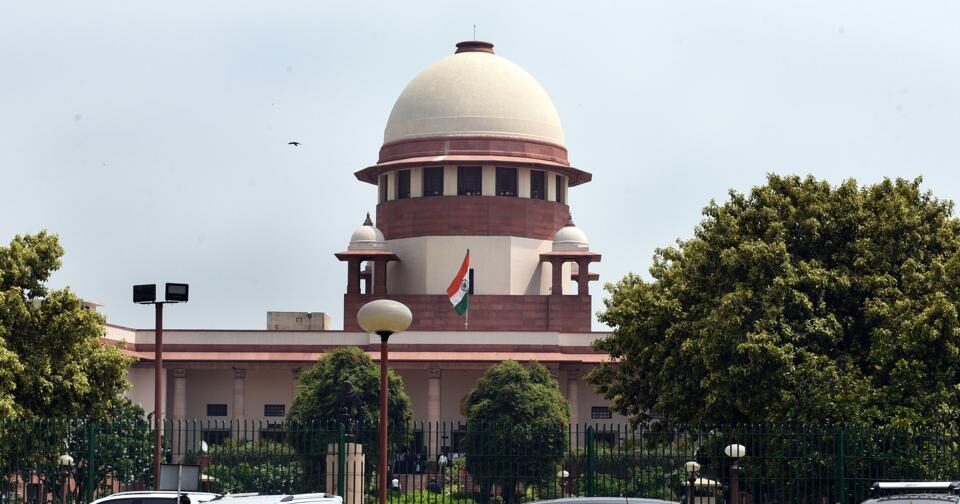
New Delhi: The Supreme Court on Wednesday, issued order for an independent probe into Pegasus spyware case, stating that the Central Government cannot get a free pass every time the spectre of national security is raised. The apex Court appointed a committee comprising three technical members and supervised by a retired judge Justice R V Raveendran, to conduct a ‘thorough inquiry’ into allegations of use of Pegasus software for unauthorised surveillance.
The verdict came on a batch of 12 petitions, which sought an independent probe into the allegations which surfaced in the media about the unauthorised surveillance. The court stated that the right to privacy, although declared to be inalienable, cannot be said to be an absolute, as the Constitution does not provide for such a right without reasonable restrictions. It said that certain limitations exist when it comes to the right to privacy as well, adding however, any restrictions imposed must necessarily pass constitutional scrutiny.
The Centre had declined to file any further affidavit in the matter saying it involved matters of national security, but took the stand that it was willing to disclose all information before a committee of technical experts and urged the court to let it appoint the committee. The Court declined the government’s request to constitute the committee. ‘ Of course, the Union of India may decline to provide information when constitutional considerations exist, such as those pertaining to the security of the State. However, this does not mean that the State gets a free pass every time the spectre of ‘national security’ is raised’, court said.
Justice Raveendran will be assisted in the task by Alok Joshi, a former IPS officer (1976 batch) and Sundeep Oberoi, Chairman, Sub Committee in (International Organisation of Standardisation/International Electro-Technical Commission/Joint Technical Committee). The three technical members of the committee are Naveen Kumar Chaudhary, Professor (Cyber Security and Digital Forensics) and Dean, National Forensic Sciences University, Gandhinagar, Gujarat; Prabaharan P, Professor (School of Engineering), Amrita Vishwa Vidyapeetham, Amritapuri, Kerala; and Ashwin Anil Gumaste, Institute Chair Associate Professor (Computer Science and Engineering), Indian Institute of Technology, Bombay, Maharashtra
Also read: Mosque vandalised, shops set on fire by VHP protestors in Tripura
A bench headed by Chief Justice of India N V Ramana said ‘the committee will ‘enquire, investigate and determine’ (i) whether the Pegasus suite of spyware was used on phones or other devices of the citizens of India to access stored data, eavesdrop on conversations, intercept information and/or for any other purposes not explicitly stated herein; (ii) The details of the victims and/or persons affected by such a spyware attack; (iii) What steps/actions have been taken by the Respondent-Union of India after reports were published in the year 2019 about hacking of WhatsApp accounts of Indian citizens, using the Pegasus suite of spyware; (iv) Whether any Pegasus suite of spyware was acquired by the Respondent Union of India, or any State Government, or any central or state agency for use against the citizens of India; (v) If any governmental agency has used the Pegasus suite of spyware on the citizens of this country, under what law, rule, guideline, protocol or lawful procedure was such deployment made; (vi) If any domestic entity/person has used the spyware on the citizens of this country, then is such a use authorised; (vii) Any other matter or aspect which may be connected, ancillary or incidental to the above terms of reference, which the Committee may deem fit and proper to investigate’.
‘It will also make recommendations (i) Regarding enactment or amendment to existing law and procedures surrounding surveillance and for securing improved right to privacy; (ii) Regarding enhancing and improving the cyber security of the nation and its assets; (iii) To ensure prevention of invasion of citizens’ right to privacy, otherwise than in accordance with law, by State and/or non-State entities through such spywares; (iv) Regarding the establishment of a mechanism for citizens to raise grievances on suspicion of illegal surveillance of their devices; (v) Regarding the setting up of a well-equipped independent premier agency to investigate cyber security vulnerabilities, for threat assessment relating to cyber-attacks and to investigate instances of cyber-attacks in the country; (vi) Regarding any adhoc arrangement that may be made by this Court as an interim measure for the protection of citizen’s rights, pending filling up of lacunae by the Parliament; (vii) On any other ancillary matter that the Committee may deem fit and proper’.

Post Your Comments